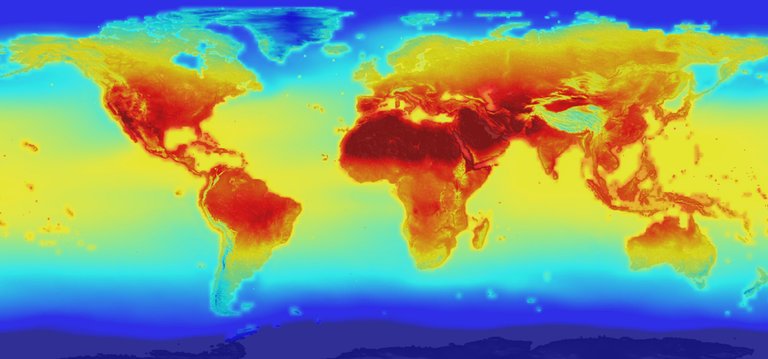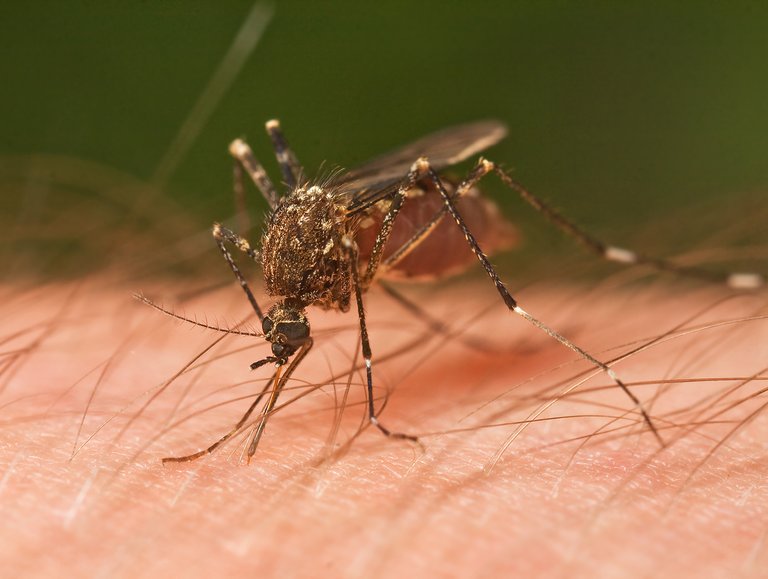Global climate change has been pounded into our brains by both science and politics. It is a topic debated heatedly, with many warning of environmental disasters to come, while others downplay the consequences predicted. Since 1880, the average global temperatures have risen by about 1 degree Celsius. Just one single degree seems so inconsequential in the grand scheme of things; many people would probably not even notice such a difference. And considering this change has occurred over such a long period of time, almost 130 years, why are we so concerned with this single degree of change? A new study has revealed some shocking evidence about the profound impact of this one small change.

Study lead author Brett Scheffers, assistant professor in the department of wildlife, ecology and conservation at the University of Florida, launched an investigation into the effects of global temperature changes on the world's ecosystems and organisms. Seemingly countless other similar studies have been conducted looking into these same impacts, so Scheffers worked with researchers from 10 other countries, comparing evidence and reviewing previously published data and trends. The compilation of their work provided evidence on a massive scale, revealing climate change responses across 94 ecological processes that are important or necessary for healthy terrestrial, marine and freshwater ecosystems (Source). Of these 94 crucial processes, over 80% revealed signs of distress as a response to the change in climate.
“Some people didn’t expect this level of change for decades. The impacts of climate change are being felt with no ecosystem on Earth being spared.” - study co-author James Watson, an Associate Professor at the University of Queensland in Australia Source

Across the many ecosystems, organism species are being heavily afflicted by the shift. Changes to their genetic makeup, physiology, morphology and phenology, have been documented, impacting their distributions, food webs and overall interactions within their species and with others. Some species are producing babies that are smaller than previous generations, and even the sizes of adults have shown change. The timing of annual migrations and hibernation cycles of many animal species have shifted, and temperate plants are flowering earlier in the year (impacting the food chain from the very bottom). Population distributions have shifted as well, and even the sex ratios of some species have been altered, all because of this one single degree Celsius.

The study goes on to include that the natural world won't be the only ones impacted; humans will be affected by this minute shift as well. Our food sources are already facing increased pressures; due to the increased temperature of the water, fisheries have decreased in productivity. Rising temperatures and increasing variability of rainfall has decreased the yield of important crops, such as rice, maize and coffee. Warmer temperatures have allowed pest species like mosquitoes to thrive, increasing disease outbreaks around the world (such as chikungunya and dengue).
"The extent of change is astonishing, especially since the planet has experienced only a relatively small rise in temperature." -Watson Source

The authors stress that if we wish to combat the effects of climate change, we must ensure the health of large, natural ecosystems. These act as giant repositories for carbon, but more importantly are a buffer that can regulate local climate regimes. This allows species (including humans) to more easily adapt to these changes. The researchers insist that politicians must recognize and accept the impacts of global climate change; only by curbing the emissions of greenhouse gases can we hope to protect these critical ecosystems.
“The science is undeniable that climate change is currently impacting and will continue to impact nature and society in ways that harm our health and well-being. The responses we observed to just 1°C of warming should make everyone a little uncomfortable because if significant emissions cuts are not made in the very near future, experts predict that we might see 2°C to 3°C warming by the end of the century. This will be catastrophic for both the environment and people.” -Scheffers Source

Thanks for posting this. I'm hoping to see some more (honest, science-based, grounded-in-truth) coverage of climate change and global warming here. Like the coverage of #science here, posts on climate seem to be more nonfactual than one would hope. If you like reading about science and the outdoors, I've got lots of posts on those topics.
csat.au.af.mil/2025/volume3/vol3ch15.pdf
Owning the weather by 2025. Government website. Can someone explain?
Funny thing how it is affecting the climate of Venus, Mars, Jupiter, and Saturn too.
Plenty of planets faced some pretty radical effects from climate change but it's difficult to compare them because of the different natures of each planet (distance from the sun, size, composition, etc). For example, scientists speculate Venus was once a planet that was very similar to Earth before succumbing to it's own greenhouse effect, however (from what I understand) this was in part because Venus was not able to deposit carbon as a solid the way Earth does.
I was thinking of more recent examples of energetic changes throughout the solar system.
While many of the people studying this are looking at the individual planets, few are looking at the overall energetic changes to the entire solar system. Solar irradiance is not the only energetic input to planetary systems.
http://www.space.com/21612-venus-winds-hurricane-speeds.html
http://www.universetoday.com/93494/is-venus-rotation-slowing-down/
https://www.nshss.org/media/1506/sherman.pdf
https://www.newscientist.com/article/dn9100-saturns-rotation-puts-astronomers-in-a-spin/
https://science.nasa.gov/science-news/science-at-nasa/2006/02mar_redjr/
https://science.nasa.gov/science-news/science-at-nasa/2010/20may_loststripe/
That's really interesting! You're right I was only looking at it from a planetary scale, not from the view of the entire system. Thanks for the links!
Sure, just trying to spread the data. There are also things like the ongoing solar shutdown, and the increase of cosmic rays as a result, which is demonstrated to cause increased cloud cover. I've been collecting this for a while. The myriad energetic interactions that we are exposed to are fascinating. Here are a few more.
http://www.leif.org/research/SSN/Penn2.pdf
http://www.universetoday.com/18544/solar-systems-protective-shield-is-weakening-solar-wind-velocity-at-record-low/
http://physicsworld.com/cws/article/news/2013/sep/09/physicists-claim-further-evidence-of-link-between-cosmic-rays-and-cloud-formation
Thanks! I'm not nearly as familiar with this stuff so this is new to me for the most part!
Pakistan should be in the list of Most affected countries as it has been destroyed by flood and drought in different areas of the country, but China and US is big cause and contributors of climate change as they having industries and pollution sources.
Middle eastern countries are definitely facing the brunt of climate change (I believe certain regions are now close to unlivable if they aren't already).
And, unfortunately, you're right about the big contributors to the problem. The United States' decision to leave the Paris Agreement means that we won't be taking the proper precautions to mitigate our impact. It is so frustrating to be a scientist here in America where science is ignored or ridiculed. Hopefully we get back on track and rejoin the Paris Agreement someday soon!
This post has been ranked within the top 50 most undervalued posts in the second half of Feb 16. We estimate that this post is undervalued by $6.36 as compared to a scenario in which every voter had an equal say.
See the full rankings and details in The Daily Tribune: Feb 16 - Part II. You can also read about some of our methodology, data analysis and technical details in our initial post.
If you are the author and would prefer not to receive these comments, simply reply "Stop" to this comment.